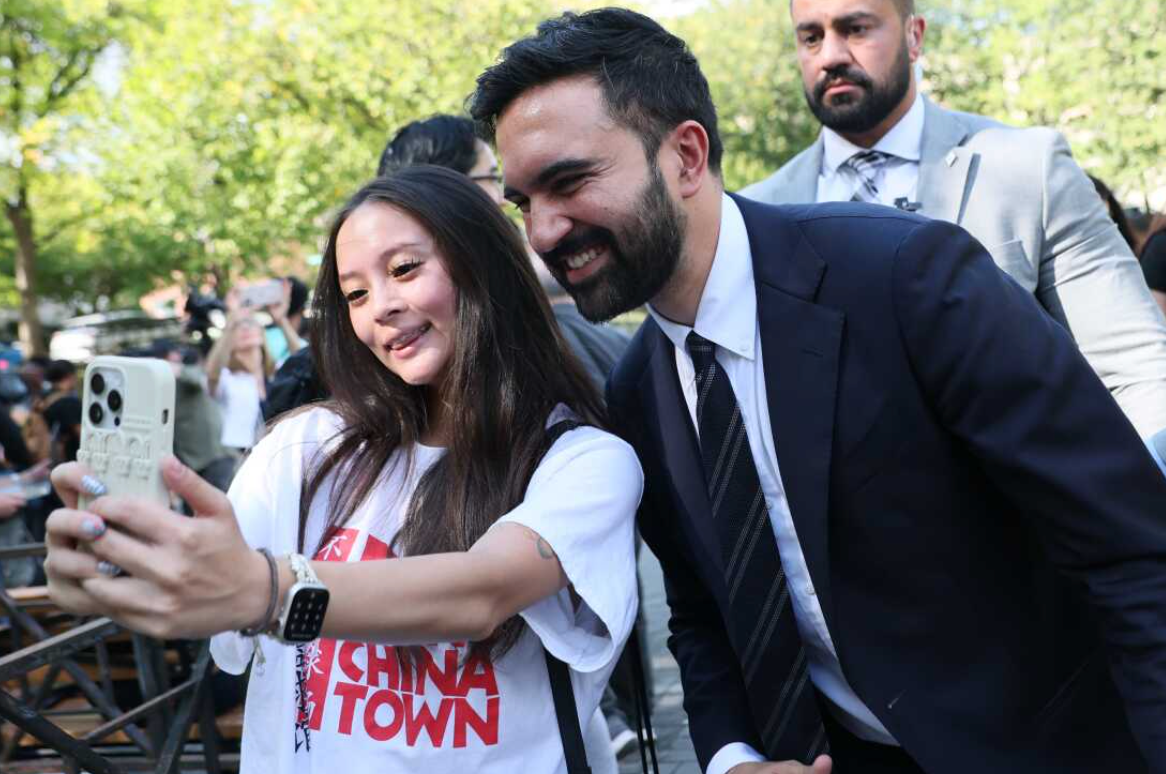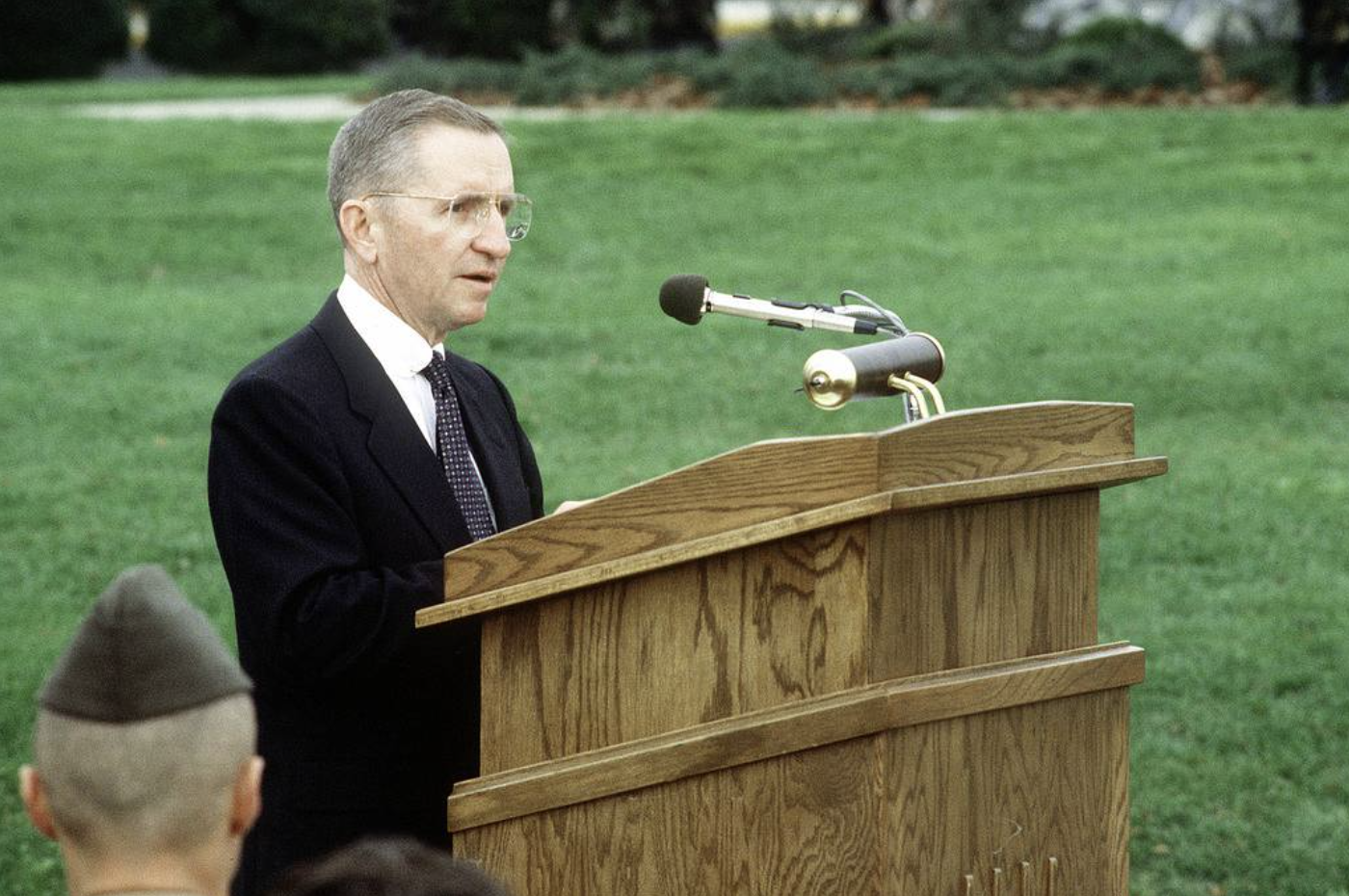As developers put profits over people, Charlottesville is undergoing gentrification. Charlottesville’s Public Housing Association of Residents (PHAR) is fighting to stop this.
In a country as large, diverse, and divided as the United States, it is troubling that only two nationally viable political parties exist. How can a successful third party be built, and what should it look like?
Since President Trump has taken office, he has reshaped the American media and challenged the First Amendment by detaining student protestors, restricting news outlets, attacking educational institutions, and sidelining judges.
As Gen Z voters gain influence, Zohran Mamdani’s mayoral victory reveals how social media is reshaping political strategy. TikTok has redefined how to connect to voters, making online cultural fluency an influential component of electoral success.
Trump’s Compact for Excellence in Higher Education is framed as a method of inclusion, when in reality Trump is attempting to gain control over universities, pressuring the schools to align with his conservative agenda.
Zohran Mamdani, a populist progressive, is the mayor-elect of New York. Chuck Schumer did nothing with this moment and committed one of the greatest political blunders in recent memory.
Long considered the charge of far-flung dictators, Donald Trump has sought to better his image through his consistent involvement in sporting events nationally and worldwide.
The American economy is currently being propped up by the belief that AI will exponentially boost worker productivity. But the excitement has outpaced reality, and when this bubble bursts, the fallout will be felt disproportionately by workers and consumers.
Social media isn’t just a form of entertainment anymore. It’s a way for everyday people to speak their truth. But how has this affected the political sphere?
Since running for president as an outsider in the 1992 election, Perot’s brand of eccentricity remains unreplicated. However, Americans as a whole feel a particular disdain for the political establishment. Could someone like Perot capitalize on that?
153 years ago, the first national park was established to promise the preservation of America’s natural treasures for generations to come. However, with recent proposed budget cuts and executive orders from the Trump Administration, it is uncertain that this promise will be fulfilled.
Just as other societies have been throughout history, modern America is a powder keg that needs just one act of political violence to ignite the spark. Such a spark may have been ignited on September 10th.
The Supreme Court is set to decide how essential a critical part of the Voting Rights Act of 1965 is to protecting Black voters in the 21st century.
As President Trump imposes a new fee on the H-1B visa, economists express concern about how this fee can diminish America’s competitive advantage on the world stage and to what degree foreign labor-dependent industries will be impacted.
Americans used to see college as the land of opportunity. Now, they’re not so sure. Overambitious government policy and an anemic social image led the university to lose touch with the nation.
As tensions between the executive branch and media outlets increase, President Trump further establishes his control over the free speech of millions of American citizens. The consequences of his actions leave many to question the legalities of government coercion and if we have entered a new era of censorship.
With an inclination towards New Federalism, the United States Supreme Court seems poised to disregard substantive due process and disrupt the balance of federal and state power.
Charlie Kirk’s funeral in late September served as more than a memorial service. The event showed just how intertwined Christianity and Trump’s MAGA base have become. While Christianity and conservatism’s overlaps are not a new trend, they are much more intense and opposite to the foundational concept of the separation of church and state that is so integral to American democracy.
A rise in Christian nationalism has affected our nation’s democracy. The movement's hateful rhetoric has shaped the politics and communities that don’t align with its values.
Medicaid cuts, the allowed expiration of the Affordable Care Act, and other facets of Trump’s One Big Beautiful Bill threaten to cut millions in funds from those receiving proper health care. Rural communities, many of which voted for Trump, will be disproportionately affected.
Assessing what direction the Democratic Party must go in order to reclaim the White House from the GOP.
The slaughter of innocents is not worthy of commemoration with Medals of Honor. Secretary of Defense Pete Hegseth’s refusal to revoke this honor for the soldiers present at Wounded Knee is a display of blinding patriotism at the expense of historical accuracy and dignity.
Erika Kirk is using her recent publicity from Charlie Kirk’s recent death to manipulate her audience and project her idea of women's “liberation” onto them.
With recent claims from President Donald Trump about links between Tylenol use by pregnant women and increased risk of autism, questions over fact-checking public officials who make public health announcements have heightened. Should government officials be held more accountable for making false medical claims?
As Senator, Birch Bayh authored two successful amendments to the Constitution. No amendment authored since him has passed. Let’s change that.
Despite the movement’s supposed ‘pro-life’ foundations, MAGA supports an administration that has exercised severe political violence towards children at home and abroad.
Classrooms are suffering under teacher quality and quantity, and proposals to cut federal teacher preparation programs threaten to worsen the issue — Virginians are looking to their next Governor to turn things around.
Discussion of recent events have often centered around the term “due process.” Understanding the term and its implications for our democracy are crucial for its survival; far from being solely a legal protection, due process is an essential safeguard against authoritarianism.
Celebrating the death of Kirk doesn’t dismantle his harmful ideology — instead, it normalizes violence as a political tool.






























On January 3rd, 2026, the Trump Administration arrested Venezuelan President Nicolás Maduro, framing the operation as necessary to stop America’s drug epidemic. However, Trump has other motives: Expanding American dominance.